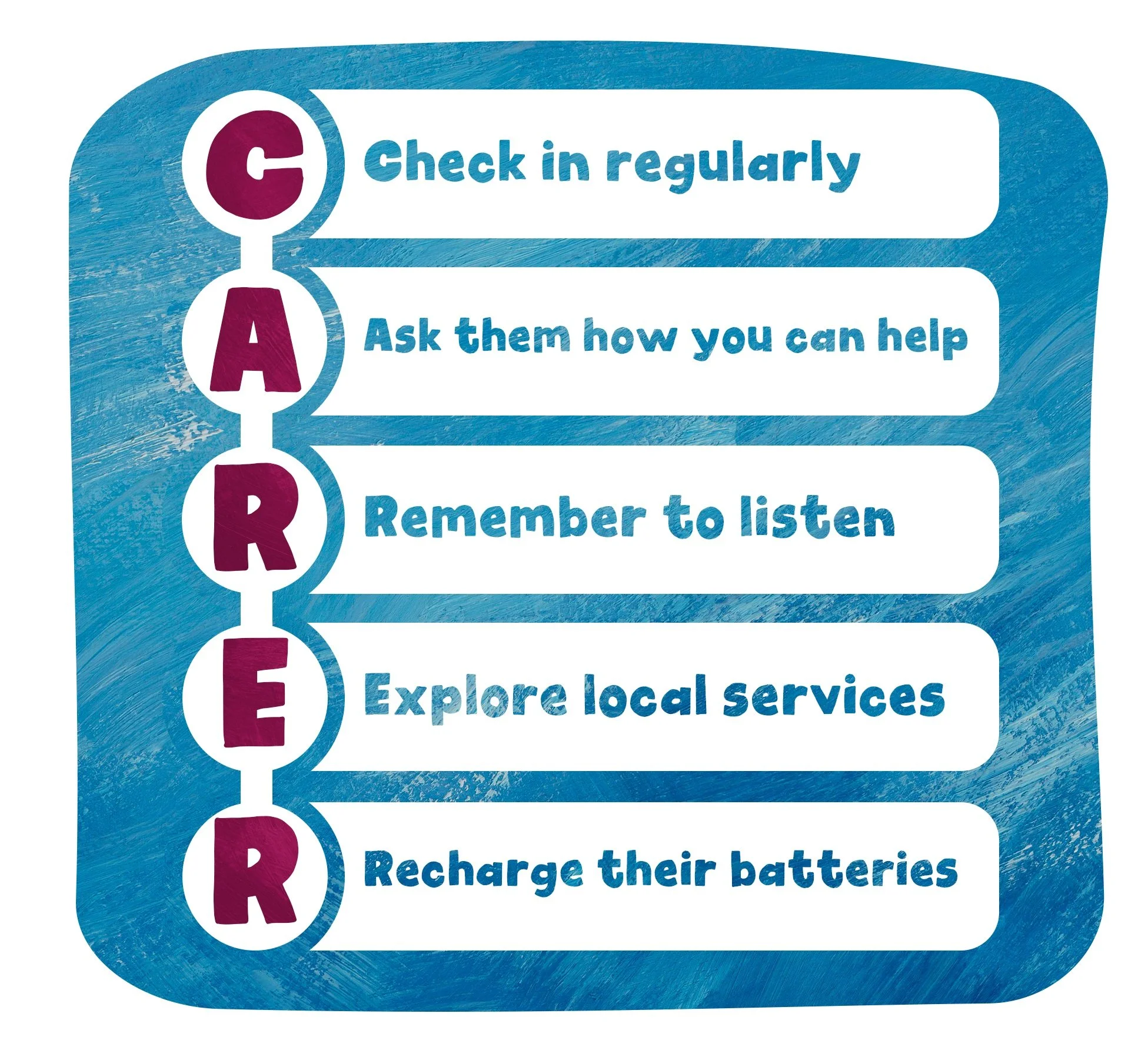Check in regularly, even if you don’t hear back
It’s important to remind carers that they count! Let them know you’re thinking of them with a simple text message. Ask them if they need anything, or just comment on the weather. They may not know how to respond, or they may not feel like it, but the feeling that they’re noticed, that someone is thinking of them without expecting anything in return, might be enough.
Ask them how you can help
It’s always nice to ask someone if there are ways you can lighten their load by taking one of their many tasks off their hands.
Maybe by going shopping? Ask if they need anything from the supermarket or if they have a prescription that needs picking up? Do they need to take a letter to the post office? Could you prepare a meal for them and bring it over, do the laundry or walk the dog?
Taking a task off their hands can make more of a difference than you might think. Even if they don’t take you up on your offer this time, ask again.
Remember to listen if a carer wants to talk
How many of us are really listening? When someone tells us what is difficult for them, it’s often tempting to give advice or say that you know how someone feels.
When talking to a carer, make sure you really listen to their experience and perspective. Try to understand things from their point of view.
If someone asks for your opinion or what you’d do in their position, share your thoughts but don’t give advice. This can make someone feel inadequate or judged. Just being there and listening to what someone says, can make them feel valuable because they feel heard.
Explore local services and pass on your knowledge
Caring can be overwhelming and exhausting. Because everyone is different and everyone’s circumstances are different, there isn’t a manual or guidebook and research takes time and perseverance.
It can be difficult to have time to find out what services and support are available locally. Especially as these vary from postcode to postcode. This can be even more difficult if you aren’t familiar with the internet or a mobile device.
Look for carers’ groups that meet regularly, dementia cafés or other activities where carers are welcome, and pass on the information. You could note anything you discover in a list and offer to sign up or help them join a zoom.
If you have the opportunity, you can try exploring social prescribing opportunities in your area. This often starts with a referral from GP, a hospital, charity or other organisation to a Social Prescribing Link Worker who connects people to local activities, groups and support services that improve their health and wellbeing.
Recharge their batteries by giving them an hour to themselves
None of us can work all the time. Time off is so important to recharge our batteries. But for carers it can be hard to find the opportunity for many reasons. Some people who care for someone with dementia feel they can’t even leave their home because it’s not safe to leave the person they care for on their own.
Can you make a plan with a carer to give them some time off – even if it’s just 30 minutes? Could you offer to sit down with the person they care for, watch a TV programme with them, have a cup of tea and chat?
Every little bit of support makes a difference. Let’s thank and support all those who care by caring for them too.
How Dementia Carers Count supports carers and families living with dementia
We know that caring for people living with dementia can be very challenging. That’s why we’re here to offer practical and emotional support to families living with dementia. We offer a wide range of resources and support that can be accessed online, by phone or in person. Our team of health and care professionals help people who care to become more confident and reduce feelings of isolation by learning more about dementia and connecting them with others in similar situations.
Why we support Thank You Day
Thank You Day is an opportunity to remember and thank everyone who cares for others in the UK. It’s an opportunity to think about how each of us can support the people we know who care for and support others, sometimes at the expense of their own independence and wellbeing.


